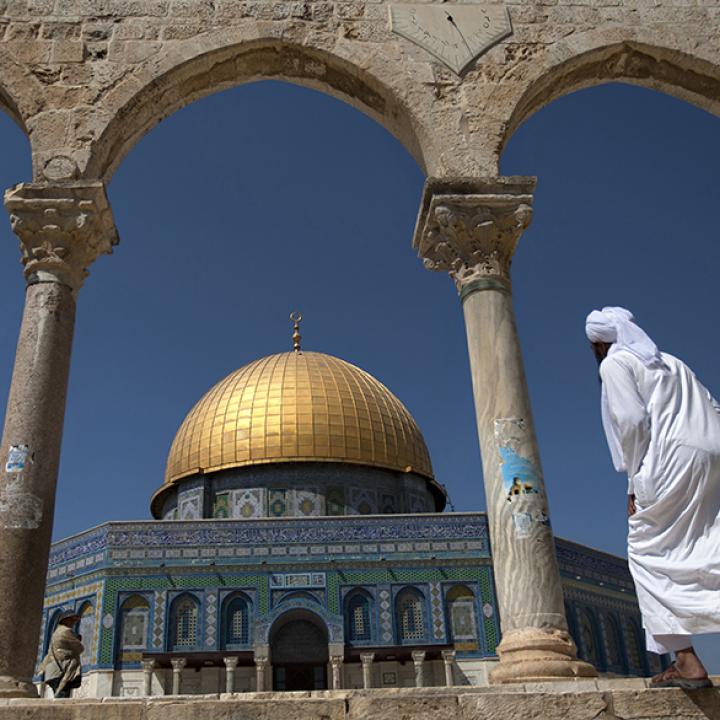
- Policy Analysis
- Articles & Op-Eds
A Path to Defusing Tensions in Jerusalem

Washington should help Netanyahu and Abbas formulate a code of conduct for preventing an explosion that would imperil both leaders politically.
No one knows whether the increasing acts of terror taking place in Jerusalem herald a third intifada. Neither the first nor second intifada were predicted; in November 1987, a traffic accident in Gaza triggered the first. In late September 2000, violent demonstrations the day after Ariel Sharon visited the Temple Mount (Haram al Sharif) took on a life of their own and produced the second. The murderous assault on a synagogue in Jerusalem's Har Nof neighborhood has escalated the violence and threatens to give it a religious character.
The first two intifadas were national in character. Is the recent violence a sign of global jihad inspired by Islamic State? Or are we seeing what happens when the status quo of Temple Mount/Haram is altered in real or imagined ways? Whatever the answer, the last thing the region needs is for the Israeli-Palestinian conflict to be transformed from a national conflict into a religious one.
The first order of business should be to defuse the situation. Israeli Prime Minister Benjamin Netanyahu and Palestinian President Mahmoud Abbas may distrust each other deeply, but this is not a moment for peace-making and historic concessions where trust must be the currency. Rather, it is a time to prevent an explosion that would imperil both.
Last week Secretary of State John Kerry met with Mr. Abbas and had another meeting with Mr. Netanyahu and Jordan's King Abdullah. He seemed to have forged some understandings that led to the Israelis lifting the age restrictions on who could attend Friday prayers on the Temple Mount (Haram). One option would be for Mr. Kerry to engage those three leaders again on a code of conduct to help avoid provocative acts. Israelis could not just talk about preserving the status quo but, citing security needs, would prevent groups from going to the Temple Mount. Israel could also avoid announcements on new settlement activity -- which makes Palestinians feel powerless and feeds the impulse to try to impose on Israel. For their part, Palestinians would not just avoid provocative statements but would also call for calm and declare that violence and terror are undercutting their positions internationally. Without stating it, they would put on hold their plans to push a United Nations resolution mandating Israeli withdrawal from the West Bank in three years.
If successful, this initial code of conduct could subsequently be bolstered by Israel declaring that it would make its settlement policy consistent with its two-state approach -- meaning that until there is an agreed border, Israel would build only in places it believes would be part of Israel and not in areas it expects to be the Palestinian state. In return, Palestinians could formally acknowledge the principle of settlement blocs for swaps and state that those Israelis living outside the blocs could remain in the Palestinian state under Palestinian sovereignty.
While these or similar parallel steps would cost each leader politically, the cost is likely to be far lower than the risks of letting today's volatile situation spin out of control.
Dennis Ross is the counselor and William Davidson Distinguished Fellow at The Washington Institute. This article originally appeared on the Wall Street Journal blog "Think Tank."
Wall Street Journal



